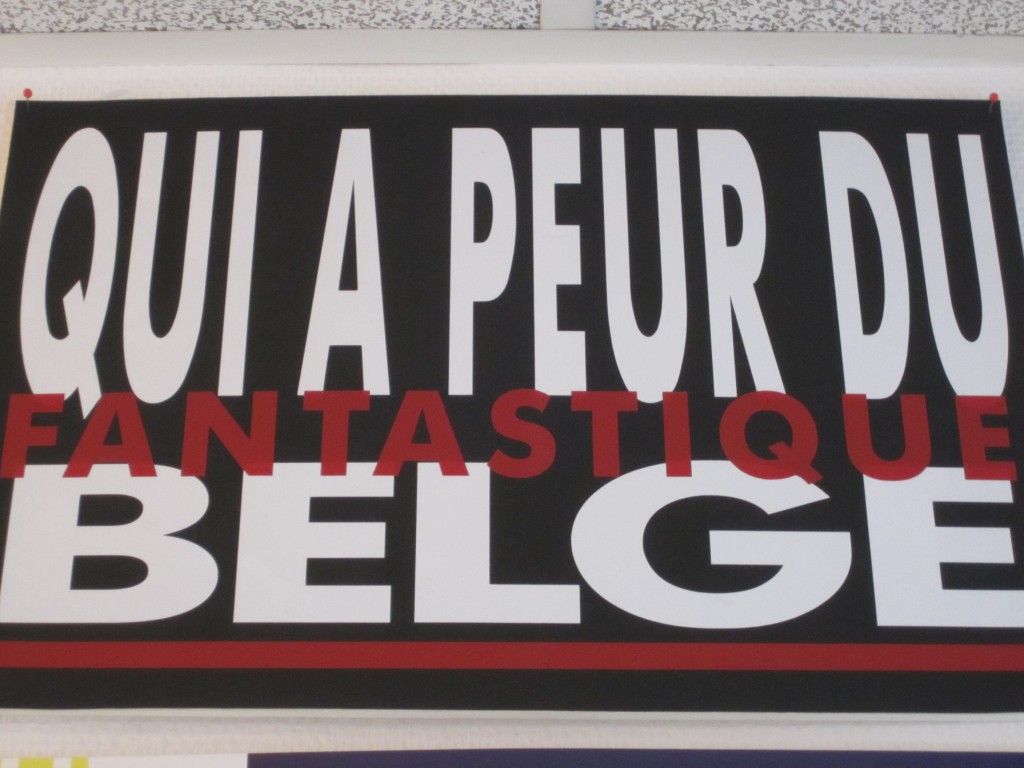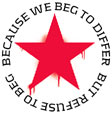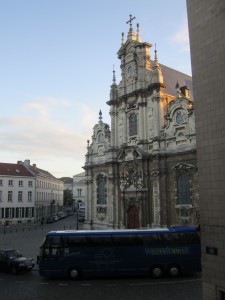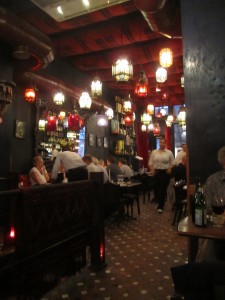Who’s Afraid?
September 28th, 2010 § 0 comments § permalink
Here, for instance, is how Geiger described the ancient Indian Vedic poems,
September 27th, 2010 § 0 comments § permalink
in particular their treatment of the sky: ‘These hymns, of more than ten thousand lines, are brimming with descriptions of the heavens. Scarcely any subject is evoked more frequently. The sun and reddening dawn’s play of color, day and night, cloud and lightning, the air and the ether, all these are unfolded before us over, and over again, in splendor and vivid fullness. But there is only one thing that no one would ever learn from those ancient songs who did not already know it, and that is that the sky is blue.’ So it was not just Homer who seemed to be blue-blind, but the ancient Indian poets too. And so, it would appear, was Moses, or at least whoever wrote the Old Testament. It is no secret, says Geiger, that the heavens play a considerable role in the Bible, appearing as they do in the very first verse… and in hundreds of places after that. And yet, like Homeric Greek, biblical Hebrew does not have a word for ‘blue.’
~ Guy Deutscher, Through the Language Glass
What I Did on My Summer Vacation
September 25th, 2010 § 0 comments § permalink
and other modest observations are now LIVE at Mischief + Mayhem Books’ Wild Rag blog. To think I just blogged about the site two days ago… but mention mayhem, and Mayhem ensues.
NEA Congratulations
September 23rd, 2010 § 1 comment § permalink
Tremendous and hearty (if slightly belated) congratulations to my fellow National Endowment for the Arts Translation Fellows for 2011! I am thrilled and amazed to be in such company, and delighted to see the names of friends, ALTA acquaintances, and other translators from the French trenches on the list: Esther Allen, Robert Bononno, Sean Cotter, Jason Grunebaum, John Taylor. I am especially psyched to hear news of Deborah Hoffman, who surely remembers that not-so-distant Dallas conference where we started out as ALTA fellows together…
Announcing Mischief + Mayhem Books
September 21st, 2010 § 0 comments § permalink
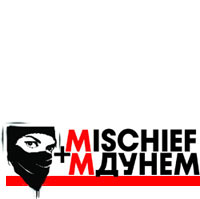 Some close friends of mine are among the founding members behind a nifty new indie publishing venture: a print-on-demand collective whose goals are “to nurture and promote distinctive authorial voices, especially those that fall outside of commercially acceptable notions of literature, and to do everything we can to bring those writers to the largest possible audience.”
Some close friends of mine are among the founding members behind a nifty new indie publishing venture: a print-on-demand collective whose goals are “to nurture and promote distinctive authorial voices, especially those that fall outside of commercially acceptable notions of literature, and to do everything we can to bring those writers to the largest possible audience.”
The collective came together in response to the increasingly homogenized books that corporate publishers and chain retailers have determined will sell the most copies. “We recognize that there are readers who want to be challenged instead of placated.” Founded by Lisa Dierbeck, Joshua Furst, DW Gibson, Dale Peck and Choire Sicha, Mischief + Mayhem intends to “promulgate writing unconcerned with having to please conservative editorial boards or corporate bookstore executives. It will also help writers earn a living wage without compromising their radical aesthetics.”
I’m genuinely sorry to have missed the launch party, which reputedly featured a burlesque dancer with a dress made from the pages of a book and a raffle whose prizes included a graffiti kit (stencils, spraypaint, and a wild rag to conceal your identity). Wild Rag being the name of their blog and webzine whose regular contributors include “such well-respected writers as New Yorker editor Ben Greenman, journalist and editor Zia Jaffrey, and New York Times art critic Martha Schwendener, each of whom will offer a challenging, rambunctious perspective on things literary, cultural, and political. Additionally, the company plans to host readings, performances and other social gatherings in order to build a literary community in the real world as well as online.”
And yeah, I’ll be blogging for them too! On translation, fabulism, genre, forgotten authors, the occasional “Letter from Brussels”… So go like M+M on Facebook!
From their press release: » Read the rest of this entry «
Less than a week
September 19th, 2010 § 0 comments § permalink
in a hotel and already I’ve got mes vieilles habitudes: little rituals, like lines traced in salt or sand, to ward off the chaos of travel. Like the instinct to keep your belongings close, and keep close track of them, vitamins and water and a cell phone in plain sight on the nightstand, your backpack pulled close to your bed. As if it were possible, to establish around your person, a magical perimeter against unpredictability, a place for you and the home you carry with you.
Breakfast begins with eggs—all in one basket, labeled RAW in four languages—at one end of the hot bar (the other items, uniformly unappetizing, are ravioli, the kind of beans Brits put on toast, and pallid, wizened hot dogs standing in for sausage). A little open boiler is chugging away, and you lower the eggs into the water, past the jostling white froth, with a wire holder whose handle folds over the boiler lip. In the time it takes you to find a seat among the hordes of aged German tour groups with your juice, toast, and cereal, your eggs are perfectly soft-boiled. There is one waitress for the whole room, who beelines between clearing tables and taking names at the door. She’s courteous as a matter of course but a darling if you speak French.
The Hotel Astrid, where the Fulbright Commission has put us up for the week of our search for more permanent housing, is on a small downtown “square†called the Place du Samedi (Zaterdagplein). I say “square†because although it is likelier than “plaza†to connote a noncommercial urban public space in English, there is nothing four-sided or regular about it; place is much more amorphous—a glorified intersection, perhaps, with some central point of interest. From my room at the end of the hall I have a slantwise view of a church down the street, with its unscrubbed Baroque façade and a homeless man slumped into his winter jacket,
but not of the nearby, much larger cathedral Sainte-Catherine, which lends a name to the equally larger “square†behind, anchoring its near end as it zooms off past blocks of seafood bistros with neon cursive signs toward the bright exclamation of a fountain.
What I hate
September 17th, 2010 § 0 comments § permalink
is when an author, editor, or rightsperson, getting a shrewd look in his or her eye, asks almost rhetorically, “So… you like the fantastic?â€
At this point it’s clear they’re about to thrust some book on me, and when inevitably they do, it’s always with the reassurance, “There’s something of the fantastic in this,†but whom, really, are they reassuring? For of course, I am usually being sold a bill of goods. Not to patrol the borders of my chosen field—I’m all for cross-fertilization—perhaps it’s only that I hate, have always hated, having reading foisted on me. Or having my preferences falsely appealed to. I’d rather be told, “Read this because it’s good,†than be lied to about any potential fantastic content.
Were the detailed instructions
September 15th, 2010 § 1 comment § permalink
on the paper towel dispenser in the first floor men’s room at the Ministère de la Communauté Française, replete with arrows for pull direction in the sequential illustrations and suggested usage lengths (± 32 cm), really necessary, or just another example of the Belgian humor that had papered the cafeteria walls with an anti-profanity campaign that, of course, seemed instead like a giant injunction to swear (Tu me fais ch… aud au coeur, Mer… ci de votre comprehension)? Hard to say, but then again, when I went back that afternoon, the paper towel dispenser was broken.
No matter how many foreign towns
September 13th, 2010 § 3 comments § permalink
I’ve been to on my own, the prospect of dinner alone the first night always intimidates me. My grasp of the language, if I do speak it, grows halting, my step on the threshold hesitant. I can’t decide if the eatery I’ve blundered into looks promising or if I’ve made a mistake: but really, it’s neither, just the fear of ordering and thereby confirming what must be obvious from my dress and demeanor: I’m a foreigner. It must be written on my face, the way nerd was when I loitered in the doorway at middle school dances, afraid to go in: into the dimness and the swaying and the crepe paper and the bored chaperones by the soft drinks. What the hell am I doing here? I don’t belong here.
You don’t want to be known—you want to pass as, be taken for—but you will be found out. My solution used to be the anonymity of fast food, served up by dead-eyed, indifferent cashiers, their curiosity extinguished by repetition and exhaustion. My first night in Edinburgh—my first time abroad, fourteen years ago—I wound up in a McDonald’s, sitting and stewing in a defeated embarrassment which, like the fear it had replaced, only I was aware of, even as I took comfort in the food’s familiarity.
Sunday night at six when I get in the hotel’s dead. I’m not sure why I expected some program coordinator to be on hand, or excited Fulbrighters to be chattering on lobby sofas. I’m the second-to-last to arrive—when the clerk hands me the information packet with my name on it, there’s only one more envelope waiting. I expected, I suppose, something like the first night of a conference: relaxed and informal introductions. Chill, not chilly. I expected us all to be on one floor and maybe one of the doors open, with someone spreading out their info packet on the bed, or some enterprising sort to be going around knocking, sticking a hand out, taking you aback with alpha extroversion. But there’s no bar and the breakfast-only restaurant is dark behind closed doors. After half an hour of strolling, and eyeing prices in the dimming evening, I walk into a warm Moroccan restaurant with many lanterns and low, plush red chairs. A few weeks earlier, a date to have tajine with a French friend had fallen through, and so now I give in to a deferred craving.
